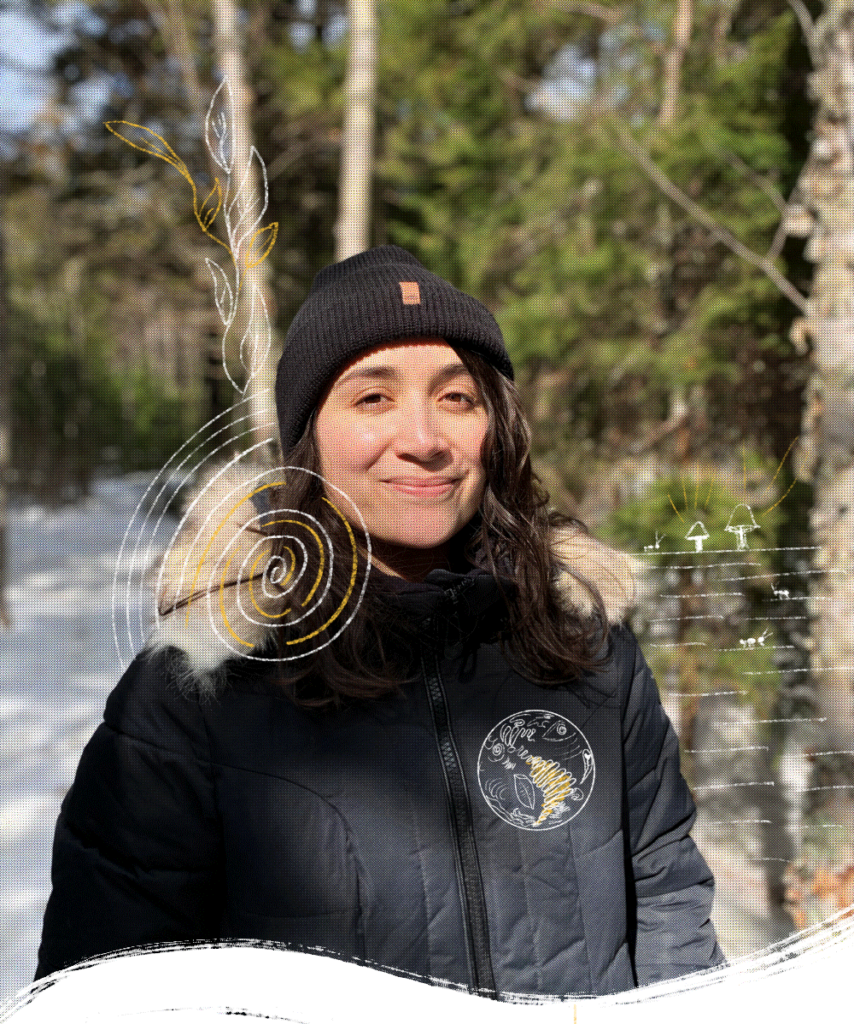giselly mejía zapata is a transdisciplinary designer, researcher, futurist and artist born in the western mountain range of the Colombian Andes and currently based in New York.
She has worked closely with the Colombian government to preserve and share the narratives of those impacted by the country’s armed conflict. Additionally, she has collaborated with NGOs like WWF, Dejusticia, and the International Rescue Committee, focusing on issues such as civil rights, migration, and environmental justice. Her portfolio has been showcased in venues such as the Bogotá Museum of Modern Art (MAMBO), Parsons School of Design, and the Brooklyn Museum.

Practice
♣The WHAT:
Giselly’s practice takes the form of:
- Participatory research
- Public policy briefs
- Curation and exhibitions
- Facilitation of workshops and spaces for conversation and learning
- Visual ethnographies
- Design fiction and speculative narratives
- Service design
- Communication strategies
♠The HOW:
Action Research
Exploring real-world issues through creative research methods, aiming to drive positive change in society.
Design and Art
Blending artistic creativity with practical design principles to craft engaging and impactful experiences
Futures and Systems Thinking
Analyzing complex systems and envision future possibilities through speculation and design fiction.
Co-creation
Facilitating collaborative processes that empower diverse stakeholders to contribute their expertise and ideas, fostering innovation and shared ownership.
♥The WHY:
She endeavors to challenge the paralysis of social and environmental despair by shifting the focus from scarcity to abundance and promoting collective action.
Areas of interest:
Human relationships with a living Earth: exploring practices for reflection, conversation, and learning around human interconnectedness with the living world. Recognizing the more-than-human world as kin, not as resources.
Imagine other futures: decolonizing imagination from the dominant Western goal of infinite growth through consumerism and individualism. Exploring local alternatives towards preferred just futures based on solidarity, conviviality, and reciprocity.
Oral history, collective memory, and the power of telling stories: facilitating the telling of embodied stories that enrich our perspective of the world and improve the intergenerational passage of knowledge.
Migration: I believe in a world of open borders.